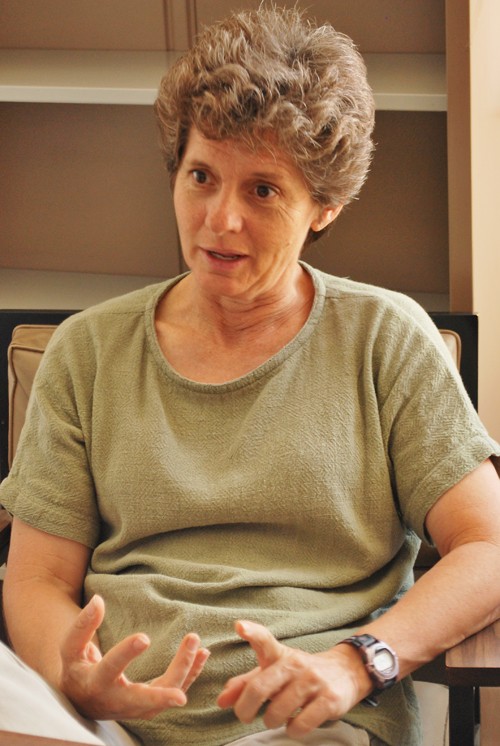This summer UA environmental anthropologist Diane Austin observed the Gulf community’s utter exhaustion from the oil spill, and now she is heading back to research the spill’s long-term effects.
Austin and UA research anthropologist Tom Mcguire, have been studying the effects of the oil industry in the Gulf for 15 years, so when the spill occurred they were able to quickly begin studying the impact.
Mcguire and Austin’s focus is on the way the spill effects people.
As anthropologists, Austin, Mcguire and accompanying graduate students live in the homes of people in the communities they are studying.
“”When you live in the home of somebody who lives in the community it’s those informal conversations,”” Ben McMahan, anthropology graduate student who was in the Gulf in July said. “”You get home from maybe doing a day of interviews and the person is in the kitchen and is like ‘Oh I made you dinner’ and then you sit down and you have dinner with them and over dinner sometimes they tell you things in an informal way that are really important about what’s going on that if you came and interviewed them they might not think to tell you.””
McMahan said the oil spill, like the hurricanes that affect the area, has an acute impact but also has a chronic long-term impact. McMahan thinks that media tends to focus on the initial acute impacts.
McMahan feels that it is difficult for people outside of the region to grasp what is going on because the media shifts focus.
“”The media tends to focus on that acute side,”” McMahan said. “”It’s going to be on TV for a while but it’s going to be in the Gulf for a lot longer.””
Austin spent five weeks in the Gulf over the summer and returned Thursday for a 15-day stay.
“”There’s some much uncertainty now about how long lasting the effects are, they really need to be documented at this point,”” Mcguire said.
When Mcguire was in the Gulf over the summer, he said that the immediate reaction of people was that they were stupefied and had no idea what long-term impacts would occur.
“”People that are living in these communities lived through Hurricanes Katrina, Hurricanes Rita, Gustav, Ike,”” Austin said.
Austin said that this summer was supposed to be the summer that the Gulf rallied back.
“”Everything from outdoor education summer programs that were going to have kids again for the first time because they had rebuilt their center so they had their programs in place. It was supposed to be a really good shrimping season. Just all across what I would say was people who had built up hope.””
When the spill occurred on April 20 the Gulf lost its summer, and now is in the middle of hurricane season.
Austin describes the current situation as a “”massive wait and see.””
McMahan said Labor Day weekend is generally a scary time and the family he stayed with said they stop worrying around mid-October.
“”What I expect to see when I go now is we are still waiting, hurricane season isn’t over. But people have a better idea. BP made payments to people for the first two months and then started sending out letters and telling people who would and wouldn’t get money or what they had to do to continue to get money.””
Austin said when she left in late July people were being informed that they would not receive any more income and were already panicked about how to handle finances.
“”What happens to a community that’s dependent on essentially the oil industry when something like this happens? How do you think about yourself when the thing that’s sort of how you make your living is also contributing the degradation of the environment?”” McMahan said. “”It’s complicated because a lot of people, the people who work in the industry, also work doing fishing or shrimping at sort of seasonal levels. So it’s not like there is one group of people who are doing fishing and another completely separate group that do the oil industry, its completely overlapping.””
Mcguire and Austin’s history with the area allowed them to get ahead of others wanting to do research in the area.
“”They’ve worked there for so long and they know so many people that its hard to go any place that you’d don’t run into somebody that they know,”” McMahan said.









